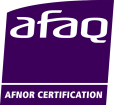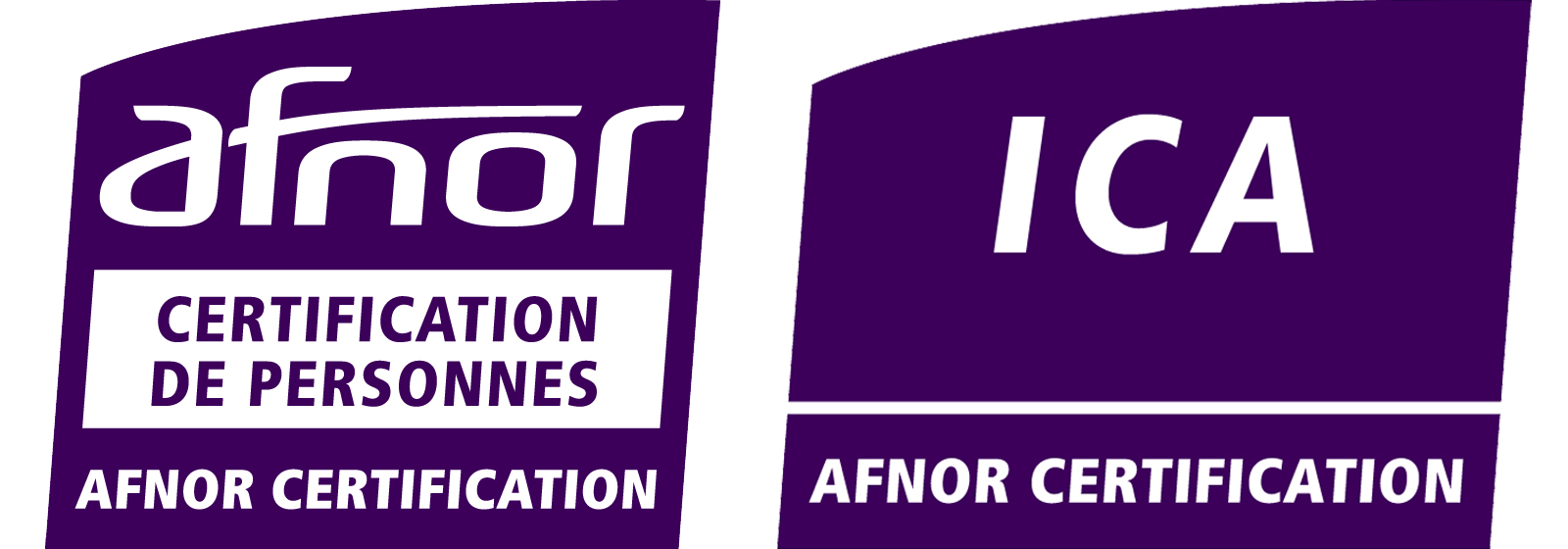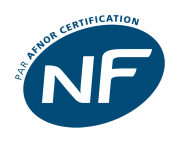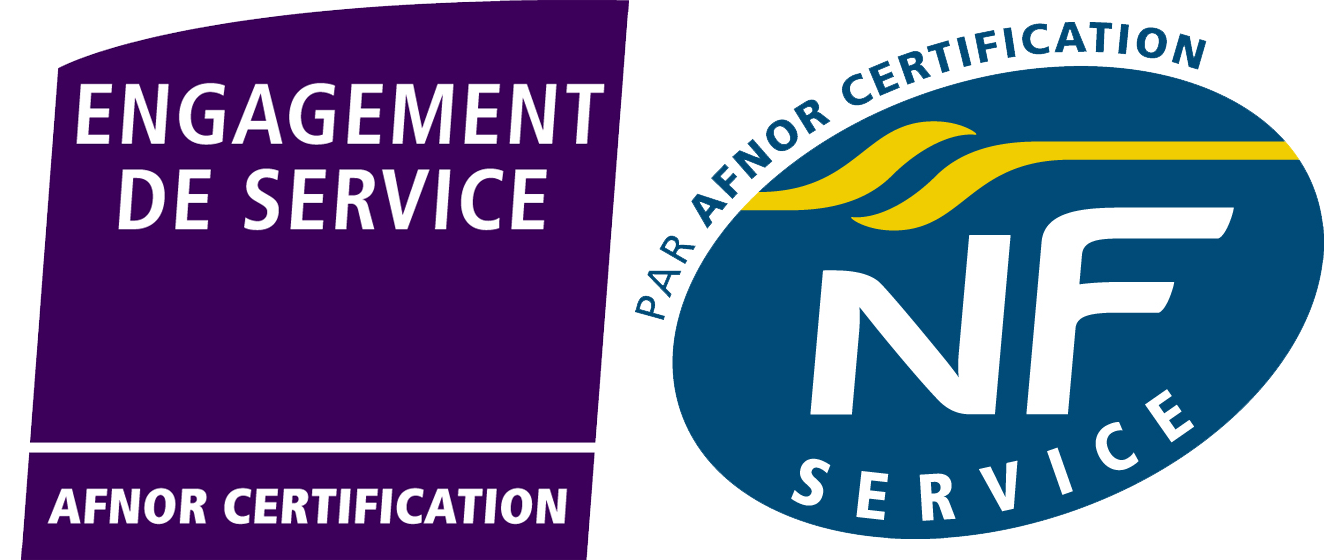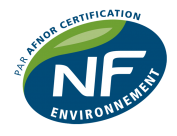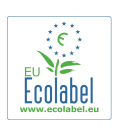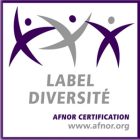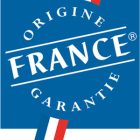Recognize the quality of your expertise!
For nearly 25 years, AFNOR Certification has been helping organizations of all sizes and in all sectors, throughout the world, to improve their competitiveness and gain recognition for their best practices through quality marks recognized by professionals and the general public alike.
Certification of systems, products, services and skills, on issues ranging from energy efficiency to IT security, from quality to social responsibility, AFNOR Certification possesses unique know-how that gives organizations total control over their approach. She chooses her certification and the dimension she wants to give it.
To meet specific challenges, AFNOR Certification also offers to co-construct an adapted reference system. It can activate each approach individually, or choose to pool them.
Answers to your questions
What's the difference between a label and a certification?
A label is a sign of recognition created by a public body, professional organization, association or private consortium. It is characterized by a protected trademark, a logo and a name. It embodies claims about the origin, virtues, properties or manufacturing conditions of a product or service, in accordance with specifications drawn up by the entity creating the label, which do not take the form of a standard within the meaning of AFNOR standards. Unlike certification, which is issued by an independent body accredited by the public authorities, corresponds to a regulated procedure and must comply with articles L. 433-1 et seq. of the French Consumer Code.
What is an assessment compared to a certification?
Assessment consists in evaluating the maturity of a company wishing to follow an improvement process, i.e. its ability to achieve its objectives. The auditor-evaluator adopts a dialogue posture, with open-ended questions. The sign of recognition often includes levels: beginner, exemplary, etc. In the case of certification, on the other hand, the auditor verifies compliance only with the requirements of a very precise set of standards. He sticks to the specifications, pointing out any deviations (major or minor).
What does the claims verification service entail?
Claim verification involves analyzing the accuracy, reliability, sincerity and robustness of the calculation methodology, process or data collection that led to the claims made by an entity. To lend credibility to its promise, the company requests verification by an independent third-party organization. For example, to certify that a product has been re-used. If the aim is to validate the robustness of a calculation method, such as a carbon footprint, the auditor checks the quality of the input and output data (notably their format), but not the result as such.
What does the validation service involve?
The aim is to validate the methodology used to draw up an improvement scenario, with the aim of making it credible that the objective will be achieved with the resources deployed. This translates into a documented program to ensure that a method, process or system consistently delivers a result corresponding to predefined acceptance criteria. Validation focuses on a process, verifying that it achieves the predefined performance and quality objectives.
How do rating agencies differ from certification bodies?
Certification is based on a set of criteria or a standard. The audit is carried out on site, to see how things are really done, to consult documents, and so on. Customers know exactly how they are being assessed, thanks to a standardized process that leads to the awarding of a mark of recognition intended to act as a differentiating criterion on the market. For their part, whether financial or non-financial, rating agencies assign a unilateral rating that sanctions a company’s behavior and performance, enabling it to be ranked and compared, using their own methods, with the sole aim of giving a signal to investors.
What does "being accredited" mean for a certification body?
Any certification body may apply for accreditation, but is not obliged to do so. However, it adds value and reinforces the entity’s credibility in the eyes of its customers and prospects. It’s a guarantee that it deploys ethical and serious professional practices. To obtain accreditation, the certification body itself is audited on its good auditing practices and the implementation of certification processes, on the basis of various standards such as ISO 17029 (for validation or verification services), ISO 17065 (for service certification) or NF X50-091 (for company qualification). You could say that the accreditation body ( COFRAC in France) is the certifier’s certifier, a sort of police force.
Supporting figures
Show your commitment with recognized brands
Product certification guarantees the consistency of a product’s manufacture in relation to the characteristics and performance defined in a voluntary standard or certification reference system. The logo affixed to the product highlights its performance to consumers and guarantees its suitability for use.
The aim of service certification is to guarantee that an organization or profession is meeting its commitments to its customers. Concrete, demanding and perceptible to the customer, the criteria of service certification standards focus on the quality of the service: from reception on the premises to staff training, customer care and waiting times. Compliance with these commitments is regularly checked by an auditor or during mystery visits.
Labels
Labels are based on specific specifications drawn up by a profession or ministry. An external, multi-party commission led by the certification body issues the 3-year certificate to the customer, attesting to its exemplary performance in a given area. Diversity, Professional Equality, Marianne, Origine France Garantie, … these are just some of the labels issued by AFNOR Certification.
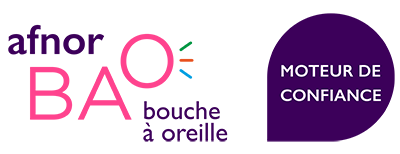
- The AFNOR BAO-qualified expert carries out a complete diagnosis of your organization to assess your current situation in relation to the standard you are targeting; Note: in accordance with our code of ethics, your BAO expert will not be able to carry out the subsequent certification audit.
- It provides customized support in implementing your action plan
They talk about it…
With AFNOR Certification’s Engagé RSE label, structure your sustainable development approach in line with the United Nations’ SDGs (French video).
Being accredited means having your practices audited, your skills verified and your independence proven. To carry out its missions with the utmost rigor (French video)
